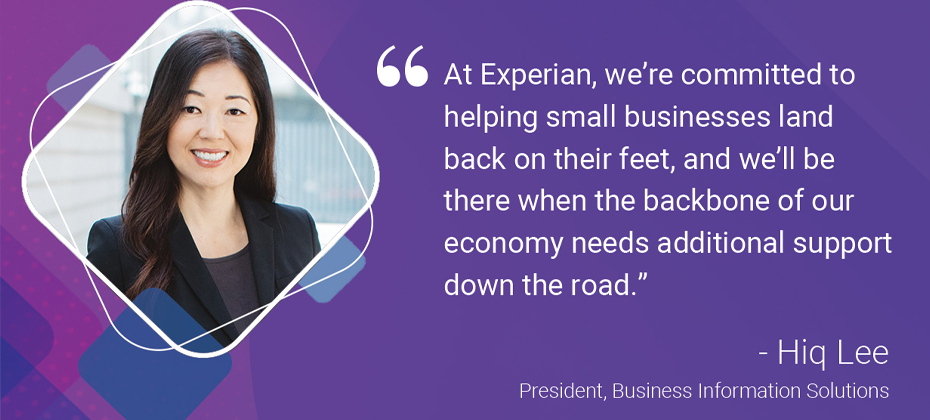There are many variations of passages of Lorem Ipsum available, but the majority have suffered alteration in some form, by injected humour, or randomised words which don’t look even slightly believable.

Paragraph block
Heading block
Pull Quote cloud news blog
There are many variations of passages of Lorem Ipsum available, but the majority have suffered alteration in some form, by injected humour, or randomised words which don’t look even slightly believable.
There are many variations of passages of Lorem Ipsum available, but the majority have suffered alteration in some form, by injected humour, or randomised words which don’t look even slightly believable.
- There are many variations of passages of Lorem Ipsum available,
- but the majority have suffered alteration in some form, by injected humour, or randomised words which don’t look even slightly believable.

Lorem Ipsum has been the industry’s standard dummy text ever since the 1500s, when an unknown printer took a galley of type and scrambled it to make a type specimen book. It has survived not only five centuries, but also the leap into electronic typesetting, remaining essentially unchanged. It was popularised in the 1960s with the release of Letraset sheets containing Lorem Ipsum passages, and more recently with desktop publishing software like Aldus PageMaker including versions of Lorem Ipsum.

Small businesses are the backbone of our nation’s economy, generating 44% of the nation’s overall revenue. When they take a hit, we all feel it. But as good neighbors – and frequent patrons – we can find a path toward keeping these small businesses on their feet and reopening their doors as soon as possible. At Experian, our obligation is to fight for small businesses that have been impacted by COVID-19. Main Street America reported in April that “COVID-19 has had a devastating impact on small businesses’ revenue…Approximately 35.7 million Americans employed by small businesses are at risk of unemployment as result of the COVID-19 crisis.” That is why we moved quickly to support the signing of the Coronavirus Aid, Relief, and Economic Security Act (CARES Act), providing relief to Americans through expanded unemployment coverage and by distributing grants and loans to small businesses. Acknowledging the unprecedented financial difficulties many are facing, lenders have established relief options for customers unable to make scheduled payments. In an effort to safeguard consumers against potential delinquency and protect credit, the CARES Act calls for creditors to adjust reporting systems for those taking advantage of these relief options. Simply put, your small business’s credit score shouldn’t be your biggest concern these days, and the CARES Act works to ensure that. We know there’s more work to be done to help small businesses navigate these challenging times. We’ve outlined the following steps to keep your business’s credit on track during the pandemic, taking advantage of resources and services we recently launched: Call Your Lender: If a customer or small business is unable to pay a bill, the most critical action they can take is to call their lender and inquire about available assistance programs. If consumers are able to get an accommodation, they can stop a missed payment from negatively impacting their credit. Business Resources Website: Experian has launched a website to help businesses prepare to manage increased attacks, push toward digital banking and understand regulatory changes as businesses find their footing in this evolving financial services landscape. Credit Report Access for All: Experian is offering all consumers access to a free credit report, FICO score and credit monitoring through our CreditWorks product, which also provides access to Experian Boost, a financial tool that has helped more than 2 million consumers increase their credit score to date. This is in addition to the free weekly credit score we are offering in coordination with our peers through annualcrediteport.com. COVID-19 U.S. Business Risk Index: Experian has launched a new service to help lenders and government organizations understand how to make lending options available to the business segments that need it most. This, in turn, directly helps small businesses gain access to capital they need. The public tool includes a risk simulator broken down by state to keep business owners updated on how COVID-19 is affecting specific industries in a particular region. As a nation, we have learned many lessons from the 2008 financial crisis. One vital lesson that sticks with us at Experian is that we’re better at tackling challenges as a collective financial industry, with transparency and a lending hand. At Experian, we’re committed to helping small businesses land back on their feet, and we’ll be there when the backbone of our economy needs additional support down the road.
To combat a growing threat that’s expected to drive $48 billion in annual online payment fraud losses by 20231, Experian® has announced the launch of Sure Profile™. Experian is the first company with an offering to combat synthetic identity fraud that is integrated into the credit profile with market-leading assurance. We are proud to be the first in our industry to actually put “skin-in-the-game” by sharing in fraud losses with our clients if the losses occur on assured profiles. Experian’s new offering validates consumer identities, detects profiles that have an increased risk for synthetic identity fraud and helps cover losses resulting from synthetic identity fraud for assured profiles. Leveraging the capabilities of the Experian Ascend Identity Platform™, Sure Profile utilizes Experian’s industry-leading data assets and data quality to drive advanced analytics that set a higher level of protection for lenders. Powered by newly developed machine learning and AI models, Sure Profile offers lenders a streamlined approach to define and detect synthetic identities early in the originations process. Experian’s Sure Profile differentiates between real people and potentially risky applicants, so lenders can confidently increase application approvals with less risk. We expect to authenticate most credit applications through Sure Profile. In the cases where the identity can’t be assured, the company will deliver additional fraud risk indicators, so that lenders can take the right next steps to verify the potential borrower’s identity and prevent fraud. To date, detecting synthetic identities has been a significant challenge for lenders because there’s not an industry standard or a single definition that can be used to establish the legitimacy of an identity. In addition, understanding the financial impact of synthetics has been difficult for lenders as losses tied to synthetic identity fraud are typically categorized as defaults or “bad debt.” With Sure Profile, we are reinforcing our position as a leader by creating a standard set of criteria to define a synthetic identity. Experian has always been a leader in combatting fraud, and with Sure Profile, we’re proud to deliver an industry-first fraud offering integrated into the credit profile that mitigates lender losses while protecting millions of consumers’ identities. Our investments in innovation, AI and machine learning and our data quality are enabling us to lead the way in identity protection and help protect consumers and lenders alike.

We are delighted to have announced our proposed acquisition of a 60% stake in Arvato Financial Solutions Risk Management division. Bringing together Experian’s global data expertise with AFS Risk Management’s market and sector experience will create a uniquely innovative organisation that can offer the best of both companies to the Germany, Austria & Switzerland (DACH) region. For us in Experian EMEA this is an incredibly exciting moment. Germany is Europe’s economic powerhouse and there is a huge opportunity to bring our Decisioning and Analytics expertise and products like Ascend Analytics on Demand to benefit existing and new clients of both organisations. Not only that, we have the privilege to work with a well-respected, established organisation like AFS Risk Management, with its deep focus on customer service, high-quality products, and solutions tailored for key industries like e-commerce, telecoms and insurance; and with the Bertelsman Group, one of Europe’s leading media groups. Following completion, our intention is to make a new, joint entity, made up of the best of Experian and AFS Risk Management, delivering broad coverage and a strong product and innovation roadmap across the DACH region. Clients of both organisations will quickly be able to benefit from the strengths each partner brings – as we deliver the best new technologies into the region, enabling them to make better, faster decisions, and ultimately delivering greater access to finance for people across the region. The acquisition now enters the EU’s standard competition review process.
In this article…
First Heading
Lorem Ipsumis simply dummy text of the printing and typesetting industry. Lorem Ipsum has been the industry’s standard dummy text ever since the 1500s, when an unknown printer took a galley of type and scrambled it to make a type specimen book. It has survived not only five centuries, but also the leap into electronic typesetting, remaining essentially unchanged.
It was popularised in the 1960s with the release of Letraset sheets containing Lorem Ipsum passages, and more recently with desktop publishing software like Aldus PageMaker including versions of Lorem Ipsum
- test1
- test1

Second Heading
It is a long established fact that a reader will be distracted by the readable content of a page when looking at its layout. The point of using Lorem Ipsum is that it has a more-or-less normal distribution of letters, as opposed to using ‘Content here, content here’, making it look like readable English.
Many desktop publishing packages and web page editors now use Lorem Ipsum as their default model text, and a search for ‘lorem ipsum’ will uncover many web sites still in their infancy. Various versions have evolved over the years, sometimes by accident,
How Experian can help with card fraud prevention and detection
Contrary to popular belief, Lorem Ipsum is not simply random text. It has roots in a piece of classical Latin literature from 45 BC, making it over 2000 years old. Richard McClintock, a Latin professor at Hampden-Sydney College in Virginia, looked up one of the more obscure Latin words, consectetur, from a Lorem Ipsum passage, and going through the cites of the word in classical literature, discovered the undoubtable source.
Lorem Ipsum comes from sections 1.10.32 and 1.10.33 of “de Finibus Bonorum et Malorum” (The Extremes of Good and Evil) by Cicero, written in 45 BC. This book is a treatise on the theory of ethics,
very popular during the Renaissance. The first line of Lorem Ipsum, “Lorem ipsum dolor sit amet..”, comes from a line in section 1.10.32.

Fourth Heading
Lorem Ipsum has been the industry’s standard dummy text ever since the 1500s, when an unknown printer took a galley of type and scrambled it to make a type specimen book. It has survived not only five centuries, but also the leap into electronic typesetting, remaining essentially unchanged. It was popularised in the 1960s with the release of Letraset sheets containing Lorem Ipsum passages, and more recently with desktop publishing software like Aldus PageMaker including versions of Lorem Ipsum.
